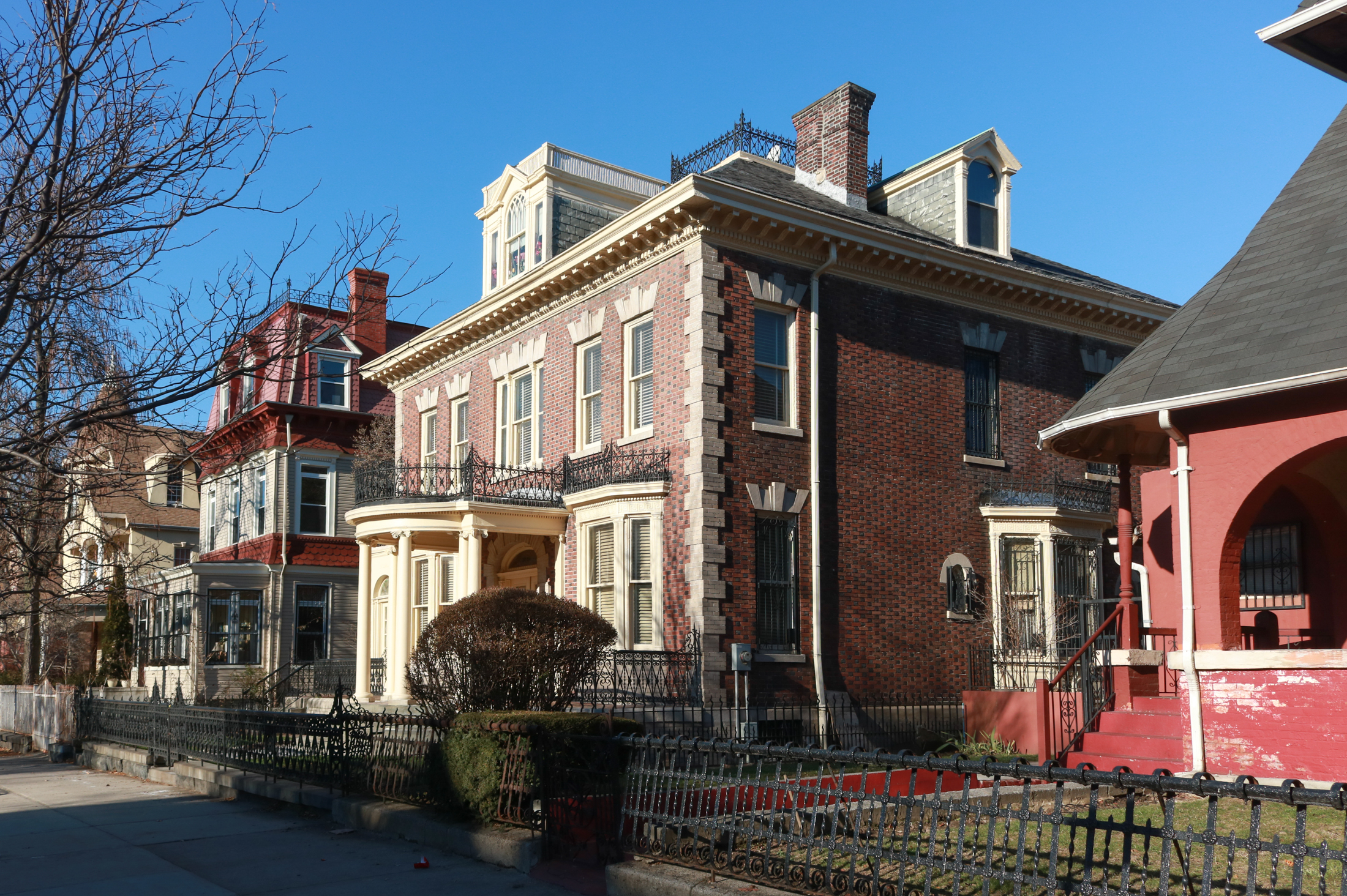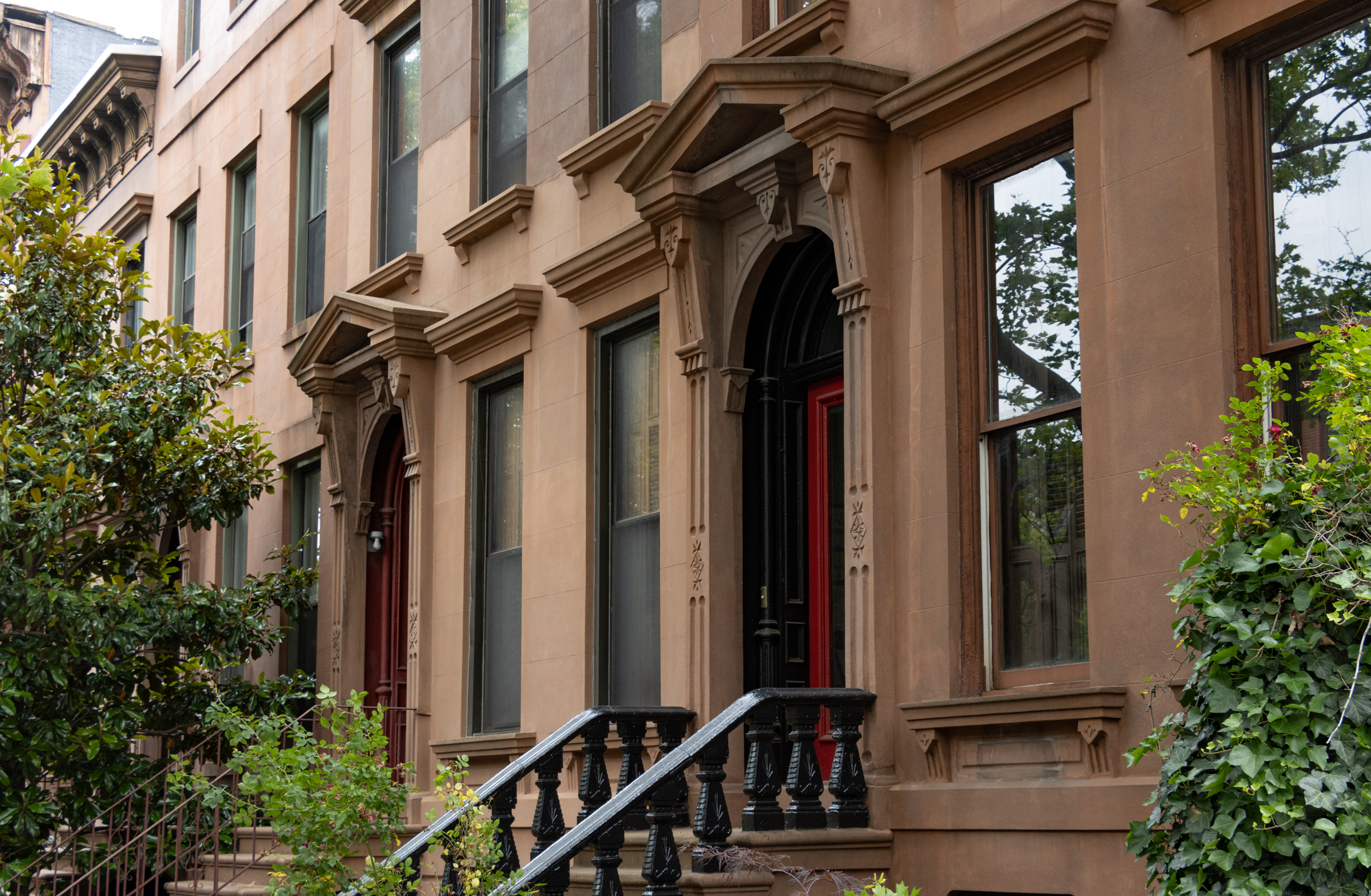Refinancing: How Sweet It Is
We’ve had a 6 percent 30-Year fixed mortgage since we bought our house in 2005. With rates at historic lows, we, like many people, started looking into refinancing earlier in the year, but had to put it on hold until we got tax extensions, and then returns, filed. When we spoke with the mortgage specialist…
We’ve had a 6 percent 30-Year fixed mortgage since we bought our house in 2005. With rates at historic lows, we, like many people, started looking into refinancing earlier in the year, but had to put it on hold until we got tax extensions, and then returns, filed. When we spoke with the mortgage specialist at Chase in February the conforming loan limit for a two-family house in Brooklyn was just south of $800,000. When we got on the phone yesterday morning we were pleased to learn that the conforming limit had recently been raised to $934,200; the single-family limit is $729,750. We were able to do a 90-day lock for a 1/4 point at 5 percent. Here’s where you have to start to question how low prices can really go: With rates where they are right now, you could, say, buy a $1.2 million house and lock in mortgage payments of $5,000 a month; assume you make $1,500 on your rental and you’re down to $3,500; throw in the tax breaks and you’re down to $2,500; add back in $1,000 a month for taxes and insurance and you’re back up to $3,500. $3,500 a month to own your own house in New York City and have, say, 2,400 square feet of living space for yourself (three out of four floors). The trickier part comes when you need to finance more than that $934,200. Have any readers gotten financing for significantly more than that recently? How did you structure it? We heard from Chase that HELOCs are quite hard to get right now?





Mr. B- You could have gotten a better deal. Rates bottomed yesterday/today.
Refinancing makes sense for some and not for others. If you can recoup your costs within 2-3 years and have the added safety of a lower payment (which everyone can appreciate) I say it makes sense. Overall you will save money over the long run.
That’s all I’m going to say
Disclamer-I do this for a living
Its not the fees, the appraisal or the points that make refis hard in NYC – its the taxes! you maybe able to get the old mortgage consolidated but it isnt easy, if not the taxes make refi costs prohibitive for everyone but the guy who intends to die in his home.
Yes Brownstoner, that is what I have been trying not so eloquently to explain. What is past is past, not relevant. What is relevant if the fees it will cost you to refi versus the monthly savings (and how long you expect to collect these monthly savings, i.e. how long you plan on living there). In your case, a refi seems like an absolute no brainer
Park sloper, you bring up some important points and other points I believe are not relevant.
Points that do matter:
How long you plan on being there going foward
How much in fees you have to pay for new mortgage
Points I don’t think matters
How much interest versus principal you have already paid…I personally do not believe this matters, you were not paying a higher interest rate for the priviledge of paying a lower interest later. You borrowed a sum of money, and you paid a rate on that money, disregarding the principal repayments you have paid. You are not going to reborrow a sum of money, and pay a lower rate on it
my first comment posted twice – I’m sorry!
It sounds like Bretton may have had the same appraiser we had (from Long Island as well). It’s not a factor of falling prices when it comes in sub-2003 levels, it’s sloppy appraising and overcorrecting from the sloppily high appraisals of years past.
With the new rules about appraiser/bank contacts in place, is there anything a homeowner can do *before* an appraisal firm is hired to make sure they’re familiar with the local market?
I just don’t get the resetting the amortization schedule argument. You can artifically unreset it by using the monthly savings to directly pay principal instead of some principal but mostly higher interest payments due to higher interest rates.
Look at it from the banks perspective…In year 1 of a mortgage they get the same monthly payment as year 30. Obviously, in year 1, about 90% is interest and in year 30, about 10% is interest. Does that mean that they prefer year 1?? The answer is no. They are still getting the same interest rate in both years, but in year 1 you owe the bank alot more money. So if anything, they prefer year 30, because they know their money is now AAA+ rated with all of the equity backing the payments, versus year 1, where default is much more likely. Now of course the bank has a portfolio of mortgages, with both year 1s and year 30s to diversify risk
A couple of more details to help the discussion. Original loan started at $1 million, now it’s down to almost the conforming level of $934,200, so the refi’d loan will start at $934,200. Right now (using round numbers) assume we’re currently paying $6,000 a month, $1,300 of which is going to principal. Day 1 of the new loan close to $1,200 will be going to principal, so if we decided to use the $1,000 savings to pay down principal, isn’t the choice: (A) spend $6,000 a month, $4,700 of which going to interest or (B) spend $6,000 a month with only $3,800 a month going to interest? You lose on the interest deduction but your principal’s getting paid down almost twice as fast. Thoughts? If What is right, obviously we want to know! No one’s got a gun to our head to refinance…
Dcorreale: thanks for the explanation. But the issue remains that if you’ve only owned for 3.5 years, you haven’t paid off much of the principal since you’ve been paying mostly interest. So starting from scratch with a new 30-year mortgage, on a slightly smaller principal, saves you some money (yes, I’d rather pay 5% than 7% on what remains), but may not save you THAT much if you only live in the place for another 5-10 years, given (1) what you paid in during the first 3.5 years, including fees, and (2) the fees you’ll pay for the new mortgage. Of course, the Brownstoner family intend to live in Clinton Hill until they die, so it’s another story for them.
What,
So Mr. B saves $12000/yr in mortgage payments. That’s more than $300k over the next 26 years. What is your calc. as to how much more interest he will pay over that time due to resetting the amortization schedule? How much is the $12k/yr likely to earn, invested conservatively, over 26 years? What will years 27-30 cost him?
Here is another way to look at it: by resetting the amortization schedule, how much less principle will Mr. B pay this year than he would have under the old schedule? Subtract that number from the $12k he is pocketing, and you get your answer as to whether this is a good move. If you think he’s wrong, use the numbers, put up a spreadsheet, and show us. It would be a public service.